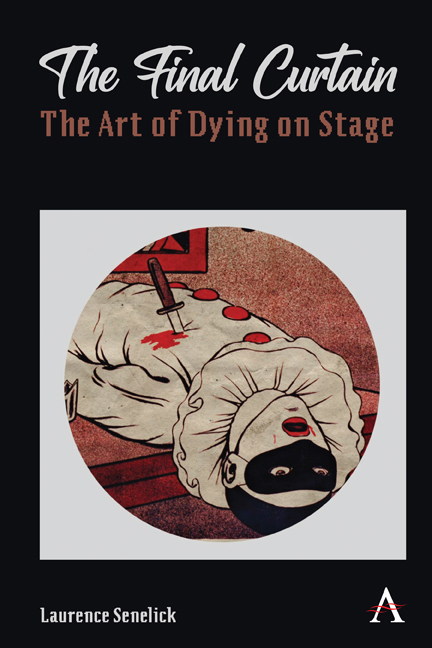2 - Murther Most Foul
Published online by Cambridge University Press: 15 September 2022
Summary
Can horror haue an auditory? can
Man loue the spectacle of ruin’d man?
We fear’d we should haue beene alone, that hence,
The Actors should haue beene the Audience.
Are you not frighted yet? do you not rise?
Can that inuite, which should dismay your eyes?
We shew neer murthers, and in that degree
Where Mariage is vnlawfull, then, the free
Progresse of crimes, by nimble Iustice met,
Æqually horrid, this we shew, but yet
Vnlesse your Courtesie, your Iudgement sway,
We suffer a worse torture, then we play.
Robert GomersallIn at the Death
The first surviving work of dramatic criticism in English is also, as one might expect, an anti-theatrical diatribe. The Tretise of Miraclis Pleyinge (c. 1380– 1420) condemns the mimetic spectacle of human bodies in pain. In its view those who torment Christ and the saints in jest (read, performance) are no different from the actual Jewish and pagan torturers of ecclesiastical lore. The treatise depreciates the alleged devotional value of performance, which is overwhelmed and eclipsed by the temporal and physical functions of playing. Unlike paintings of the Crucifixion that reveal the truth, the actor's physical presence “causes excessive bodily delight, distracting viewers from their proper eschatological hopes.” Impure flesh cannot properly incarnate sanctity. The audience, sharing the temporal dimension of the performance, never loses its awareness of the secular; its weeping at the torments depicted, complains the author, may be an emotional indulgence that detracts from actual contemplation.
The naivety of the Tretise in regard to theatrical aesthetics is typical of such polemics, which can be heard down to Dr. Johnson and beyond. This way of thinking denies the audience a double vision and the performer a twofold presence. When the actor was an amateur, a fellow townsman known to the spectators in a real-life context, a certain willing suspension of disbelief had to enter into play. The sacred narrative temporarily occludes mundane familiarity, while the familiarity levels the exalted spirituality of the sacred. A kind of double exposure occurs, with the devotional image laid over but not concealing the flesh-and-blood simulacrum. Intense faith in the former enables acceptance of the latter.
- Type
- Chapter
- Information
- The Final CurtainThe Art of Dying on Stage, pp. 41 - 64Publisher: Anthem PressPrint publication year: 2022



